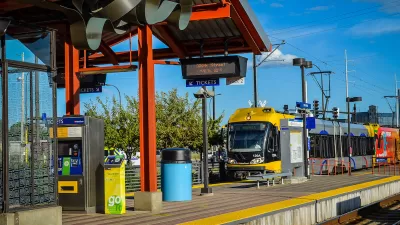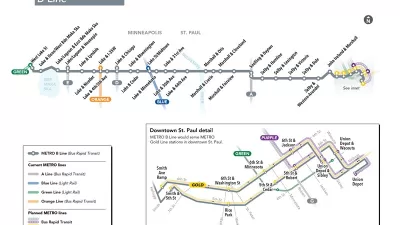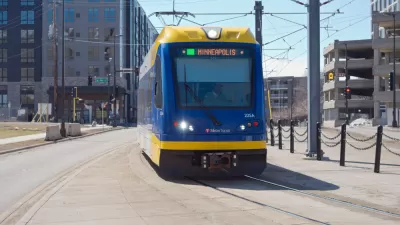Companies struggling to get employees to work are turning to a variety of transportation alternatives not traditionally covered by transit agencies.

In suburban Minneapolis, companies with locations in suburban office and industrial parks face obstacles in getting their employees to work. While transit agencies in the Twin Cities, most notably Metro Transit, provide strong service for suburban workers commuting to the downtowns of Minneapolis and Saint Paul, workers making the "reverse commute" from city to suburb, face spotty service.
The most notable solution to this problem has been made by Amazon, which has a new suburban fulfillment center in the Twin Cities that employs 2,000 people. Amazon is paying a south suburban transit agency, Minnesota Valley Transit Authority, $380,000 to create a special stop on a new bus route and the creation of weekend service. Other companies provide free shuttle buses from locations in Minneapolis to suburban employment locations.
Caren Dewar, executive director of the Minnesota District Council of the Urban Land Institute, questions whether companies will choose to locate, expand or stay in the Twin Cities if the problem isn't addressed. ULI Minnesota calls this a "regional economic imperative." Getting employees to work is a problem companies face in many metro areas across the country, exacerbated by a sprawling development pattern and a jobs/housing mismatch.
FULL STORY: Low-wage jobs are moving to distant suburbs. How will workers get there?

Alabama: Trump Terminates Settlements for Black Communities Harmed By Raw Sewage
Trump deemed the landmark civil rights agreement “illegal DEI and environmental justice policy.”

Planetizen Federal Action Tracker
A weekly monitor of how Trump’s orders and actions are impacting planners and planning in America.

Why Should We Subsidize Public Transportation?
Many public transit agencies face financial stress due to rising costs, declining fare revenue, and declining subsidies. Transit advocates must provide a strong business case for increasing public transit funding.

Understanding Road Diets
An explainer from Momentum highlights the advantages of reducing vehicle lanes in favor of more bike, transit, and pedestrian infrastructure.

New California Law Regulates Warehouse Pollution
A new law tightens building and emissions regulations for large distribution warehouses to mitigate air pollution and traffic in surrounding communities.

Phoenix Announces Opening Date for Light Rail Extension
The South Central extension will connect South Phoenix to downtown and other major hubs starting on June 7.
Urban Design for Planners 1: Software Tools
This six-course series explores essential urban design concepts using open source software and equips planners with the tools they need to participate fully in the urban design process.
Planning for Universal Design
Learn the tools for implementing Universal Design in planning regulations.
Caltrans
Smith Gee Studio
Institute for Housing and Urban Development Studies (IHS)
City of Grandview
Harvard GSD Executive Education
Toledo-Lucas County Plan Commissions
Salt Lake City
NYU Wagner Graduate School of Public Service





























